
Jean-Paul Sartre (1905-1980) is perhaps the most famous expo-nent of existentialism. His philos-ophy asserts that human beings are cursed with the impossible burden of having to make decisions without any higher justifications. There is no God or other transcendent force to dictate what they should do with their lives. Human beings are alone, and, born without an essence, are forced to define themselves through their own actions. Since we have the sole power to determine our actions, we can (and should) be judged on what we choose to do with our freedom. This is a crushing weight. We live in anguish and despair because every success and every failure rests squarely on our shoulders. The core of Sartre’s existentialism is that human beings are ‘condemned to be free’.
Sartre further explained that people lie to themselves, hoping to escape the curse of free choice. They pretend their choices have been made for them and thus are out of their control: “I can’t do what I chose because I have a family, I have a job, I have responsibilities, I have to earn money…” Sartre called this sort of attitude ‘living in bad faith’.
He also believed a person is “nothing else but the sum of his actions.” So what were the sum of Sartre’s actions? How did he choose to define his existence?
Diese Geschichte stammt aus der August/September 2021-Ausgabe von Philosophy Now.
Starten Sie Ihre 7-tägige kostenlose Testversion von Magzter GOLD, um auf Tausende kuratierte Premium-Storys sowie über 8.000 Zeitschriften und Zeitungen zuzugreifen.
Bereits Abonnent ? Anmelden
Diese Geschichte stammt aus der August/September 2021-Ausgabe von Philosophy Now.
Starten Sie Ihre 7-tägige kostenlose Testversion von Magzter GOLD, um auf Tausende kuratierte Premium-Storys sowie über 8.000 Zeitschriften und Zeitungen zuzugreifen.
Bereits Abonnent? Anmelden

The Two Dennises
Hannah Mortimer observes a close encounter of the same kind.

Heraclitus (c.500 BC)
Harry Keith lets flow a stream of ideas about permanence and change.
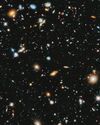
Does the Cosmos Have a Purpose?
Raymond Tallis argues intently against universal intention.

Is Driving Fossil-Fuelled Cars Immoral?
Rufus Duits asks when we can justify driving our carbon contributors.
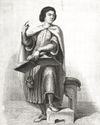
Abelard & Carneades Yes & No
Frank Breslin says 'yes and no' to presenting both sides of an argument.
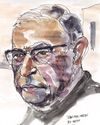
Frankl & Sartre in Search of Meaning
Georgia Arkell compares logotherapy and atheistic existentialism.
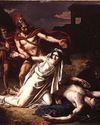
Luce Irigaray
Luce Irigaray, now ninety-two years old, was, among many other things, one of the most impactful feminists of the 1970s liberation movements - before she was marginalised, then ostracised, from the francophone intellectual sphere.

Significance
Ruben David Azevedo tells us why, in a limitless universe, we’re not insignificant.

The Present Is Not All There Is To Happiness
Rob Glacier says don’t just live in the now.
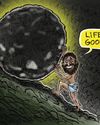
Philosophers Exploring The Good Life
Jim Mepham quests with philosophers to discover what makes a life good.